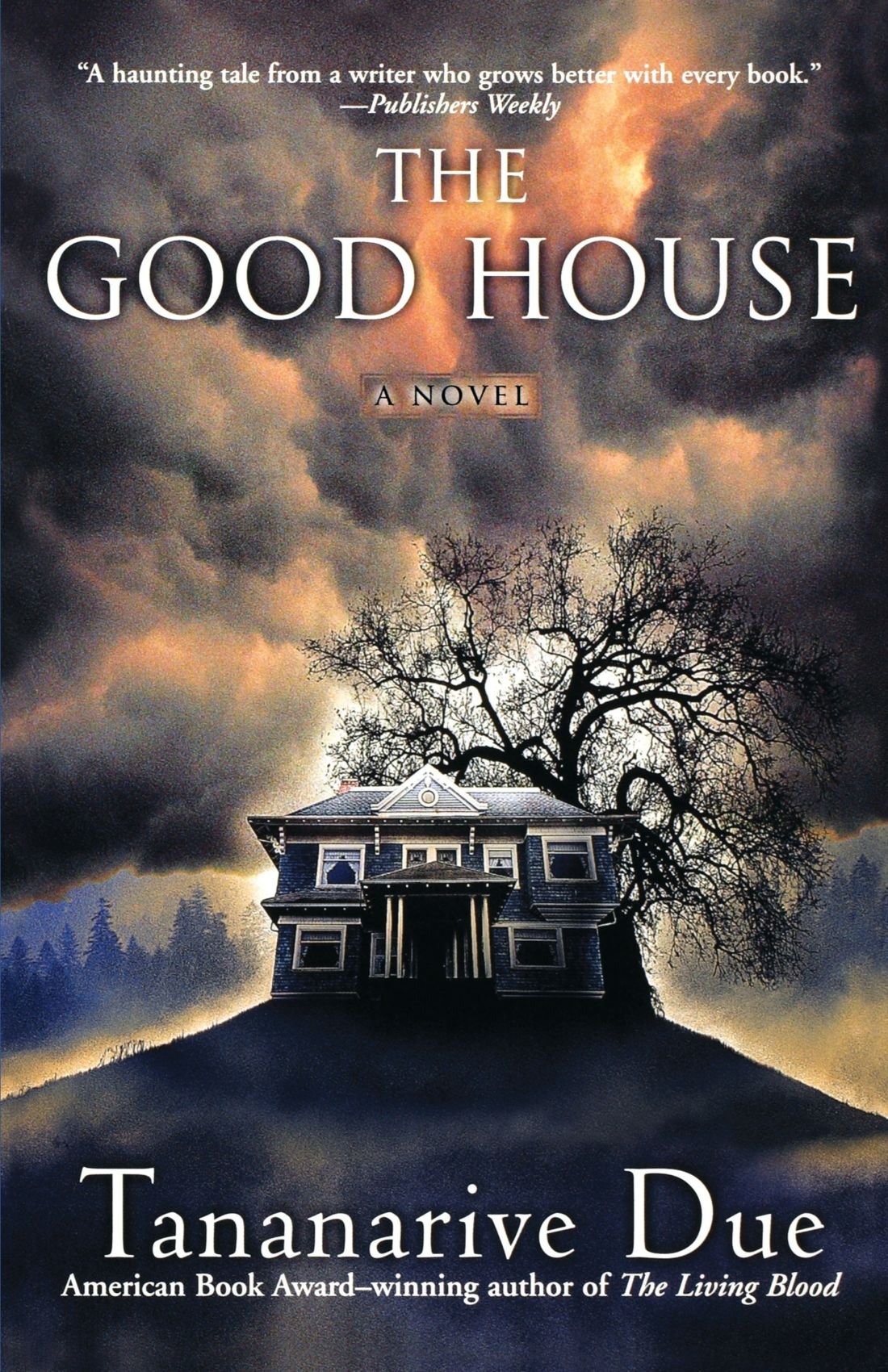
The less you know about this book going in, the more pleasure to be had from the frequent shocks to the system that it delivers. I will reveal as little as possible.
Angela Toussaint’s grandmother Marie was a manbo, a vodou priestess. Marie was revered by the citizens of rural Sacajawea, Washington, for her cures and potions, and at the same time she was never allowed to forget that she was the only African-American in town. She inherited a mansion on a hill, the ironically named Good House of the title, from her partner in the mail-order herbal business.
After the death of Angela’s mother, Marie raised Angela to be ignorant of vodou practices. Yet, years after Marie’s death, when Angela is spending the summer in the Good House with her teenaged son Corey, the supernatural begins to bleed into her reality anyway.
What a pleasure it is to read a book where the intricate plot feels so organic, so much the result of conscious decisions of complex human beings rather than a heavy authorial hand. Each choice creates ripples of consequences through the lives of a dozen or more richly drawn characters, across two parallel time lines. Angela is particularly sympathetic–strong but not superhuman, well intentioned but fallible, believably confounded when her notions of reality are taken away from her.
Subtleties abound. Corey and his best friend ride horses; vodou believers are considered “horses” when they are mounted by the lwa, the spirits. Though Due never belabors it, there are drastic differences between the way male characters use vodou and the way the female characters do, and that ties in to one of the many thematic concerns of the book–masculinity, toxic and otherwise, and the difficulty of raising a man-child in the 21st century. There are also issues of race in the novel, and a reminder that vodou, born in West Africa, nurtured in Haiti, is fundamentally Black magic. Due’s research is impeccable, but never overwhelming, and her moral compass never falters.
The combination of Due’s intensely visual writing and the empathy she creates for her characters results in some seriously scary scenes, and because of the aforementioned shocks to the system, I was left with no confidence that things were going to turn out even remotely okay.
As to whether they do or not, that’s for you to find out.
